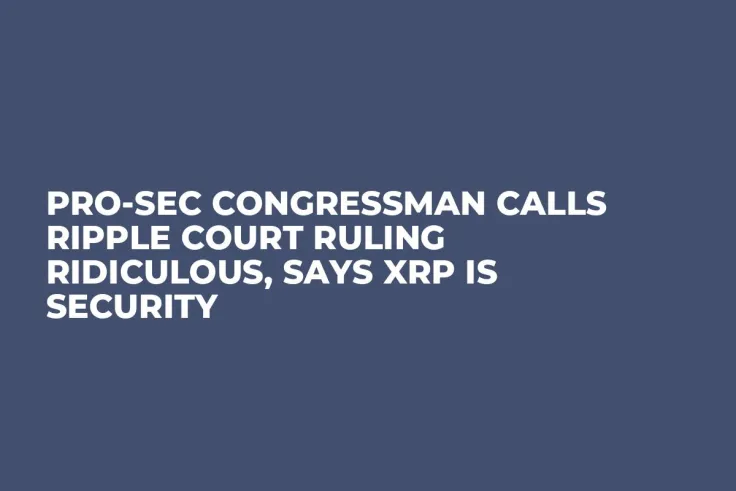
Disclaimer: The opinions expressed by our writers are their own and do not represent the views of U.Today. The financial and market information provided on U.Today is intended for informational purposes only. U.Today is not liable for any financial losses incurred while trading cryptocurrencies. Conduct your own research by contacting financial experts before making any investment decisions. We believe that all content is accurate as of the date of publication, but certain offers mentioned may no longer be available.
Controversial statements recently emerged from U.S. Congressman Brad Sherman regarding the court ruling on Ripple (XRP), provoking a heated debate within the cryptocurrency community. Following a significant legal victory for Ripple, where XRP was formally established as a nonsecurity asset, Sherman branded the court's decision as "ridiculous."
Sherman, known for his pro-SEC stance, was critical of the judge's ruling, contending that XRP is always a security, contrary to the court's interpretation that it can sometimes be a security and sometimes not. His viewpoint counters the court's nuanced understanding of XRP's multifaceted nature, as both a cryptocurrency and a technology for fast, low-cost international money transfers.
This binary view of XRP as solely a security asset sparked intense backlash from the cryptocurrency community. Critics argued that Sherman's statements reflect a lack of comprehensive understanding of the complexity of digital assets and their various applications.
The congressman also made a contentious comparison between Satoshi Nakamoto, the pseudonymous creator of Bitcoin, and Charles Ponzi, the infamous fraudster known for the Ponzi scheme. This comparison has been seen as a further reflection of Sherman's skeptical view toward cryptocurrencies.
The court ruling favoring Ripple is considered a significant win for the company in its ongoing lawsuit against the U.S. Securities and Exchange Commission (SEC). The SEC had alleged that Ripple conducted an unregistered securities offering by selling XRP. However, the court determined that XRP has both security and nonsecurity attributes, complicating its classification under existing securities laws.
The response from Congressman Sherman underscores the ongoing debate around the classification of cryptocurrencies under existing regulatory frameworks. His viewpoint that XRP should be considered strictly as a security could limit the token's potential applications and stifle innovation in the burgeoning field of digital currencies.


 Dan Burgin
Dan Burgin Vladislav Sopov
Vladislav Sopov